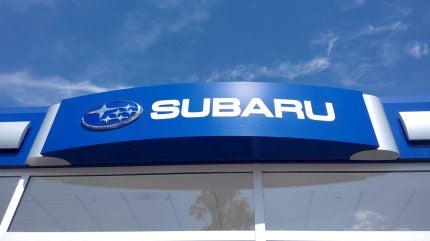
Subaru is set to scale back near-term electric vehicle (EV) investment and shift more resources to hybrids under a revised Y1.5tn ($9.74bn) electrification plan
The company will keep the total outlay unchanged but recast it as “growth investment,” with timing and allocation adjusted amid changing consumer demand and incentives.

Discover B2B Marketing That Performs
Combine business intelligence and editorial excellence to reach engaged professionals across 36 leading media platforms.
During an earnings briefing, Subaru president Atsushi Osaki, as reported by Nikkei Asia, said: “Given the increasing demand for hybrids and the reappraisal of internal combustion engines, it is appropriate to delay the timing of full-scale EV mass production investment.”
Subaru will increase spending on hybrids and petrol models and consider new models and vehicle types.
Of the Y1.5tn plan announced to 2030, about Y300bn has been spent; the remaining Y1.2tn will be reviewed.
Subaru did not disclose how the remaining funds will be allocated.
Plans to launch four battery-electric SUVs co-developed with Toyota by end-2026 remain intact.
However, Subaru is weighing a delay to four additional in-house EVs previously slated for 2028.
Nearly half of Subaru’s US sales are imports from Japan, a factor as the company navigates tariffs and policy shifts in its key market.
The strategy update accompanied mixed first-half results for the six months ended 30 September 2025.
Revenue rose to Y2.38tn from Y2.26tn a year earlier, up 5.3%, while operating profit fell sharply to Y102.67bn from Y221.99bn, down 53.8%.
Pre-tax profit declined to Y129.47bn from Y220.97bn, and after income tax of Y39bn, profit for the period was Y90.44bn, down 44.6% from Y163.06bn year-on-year.
Subaru maintained its outlook for the year ending March 2026, guiding to net profit of Y160bn, down 53% year on year.
The company anticipates tariffs to hit full-year results by Y210bn and has begun a programme to trim costs by Y200bn by 2030.






